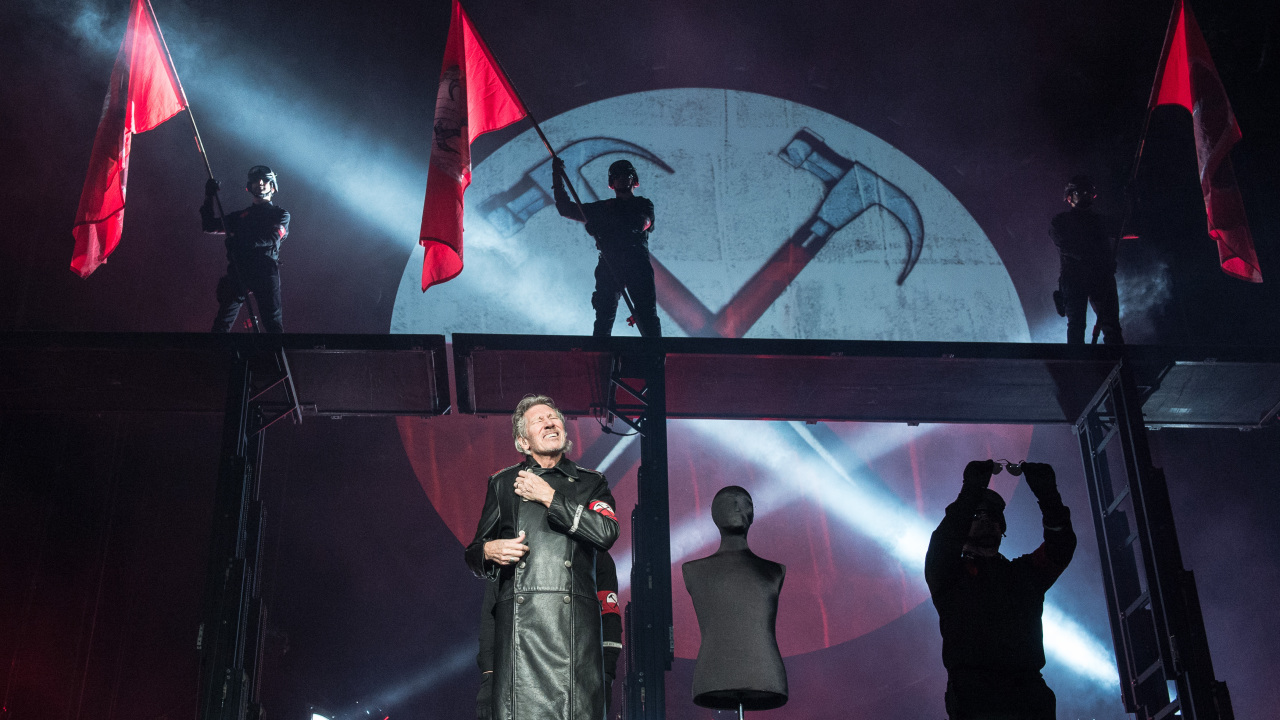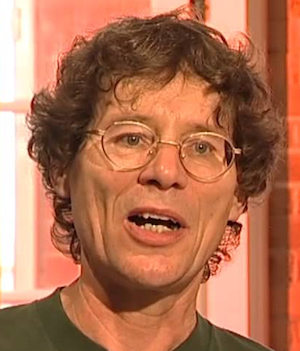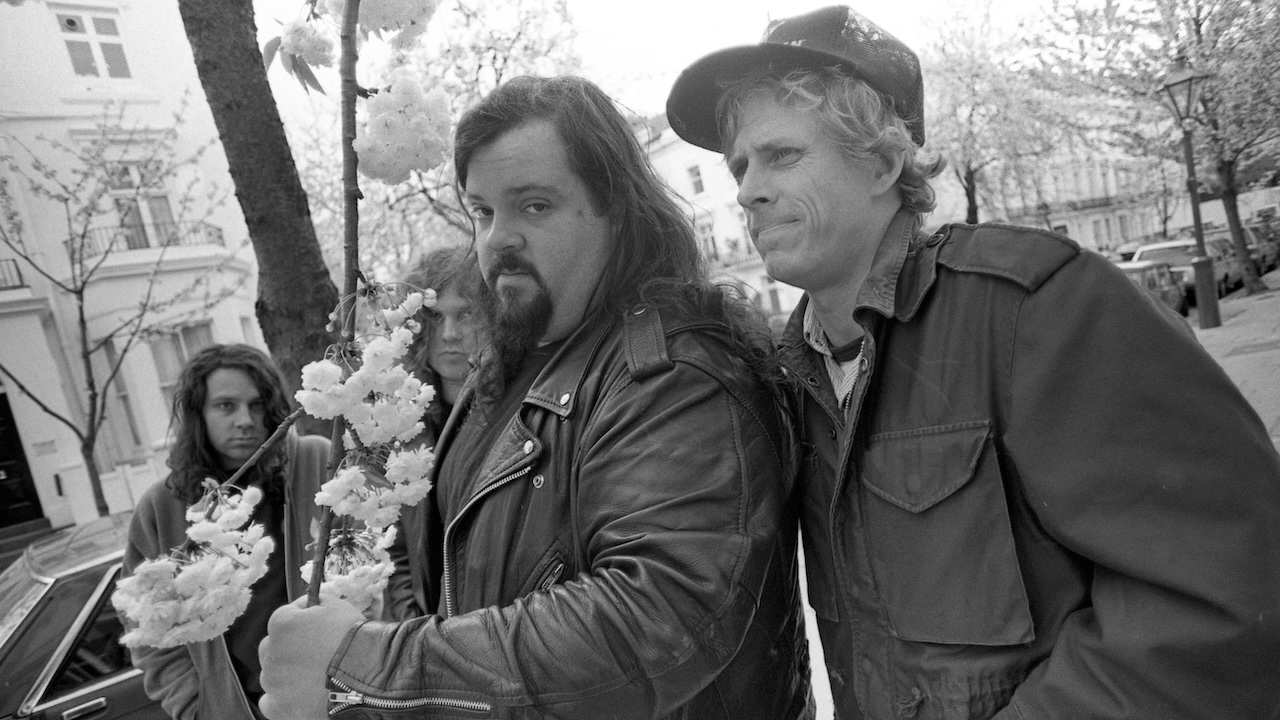Roger Waters: In The Flesh
All hail the man who built – and rebuilt – The Wall. The bricklayer-in-chief reveals his hatred of governments, his personal training regime and what was (not) happening with Pink Floyd.

Thirty years on from the original The Wall tour with Pink Floyd, Roger Waters is a changed man. Floyd’s 1979 album was Waters’ reaction to the band’s huge global success. Back then he was a distant and occasionally aloof figure.
You wrote The Wall more than 30 years ago. Do you feel it’s still culturally relevant today?
When I decided to do The Wall again, I gave some thought as to what I could bring to it. I didn’t want to go out and whine about how miserable I was when I was a young man, but you can see nations in the same way. They are subject to history in the same way an individual is, and they’re subject to fears, particularly the citizens of certain nations, where fear is used as an exercise of control. The original story of 1979 could be seen as an allegory for a broader political situation that is very relevant and pertains to now.
How have you brought it up to date for 2011?
I hope that I’ve developed this show from just being about the story of one man who hides behind a wall because he’s frightened, to being a more general piece about the way ideologies and nations are divided from one another. We’re fearful of those beyond our borders and those who may seem to be different from what we are. We have three characters that are kind of graffiti on the wall: there’s a Muslim girl, a Jewish kid and a Christian girl. And during the show I try to make the point that they have to be taught hatred. If you’re a Jewish kid, you’re not born believing that Palestinians are filthy pigs, or vice versa; if you’re a Muslim kid in Iran, you’re not born believing Israel should not exist and should be wiped off the earth; you’re taught this stuff.
How much of your traumantic childhood led to you writing the original The Wall album?
Writing The Wall was a very important and therapeutic process for me. Also, it was a very important part of making sense of my feelings. Not only the trauma of losing my father, but also trying to make sense of the fact that I felt alienated from other people. Music can be hugely therapeutic on all levels. Just making a noise can be a good thing.
The latest news, features and interviews direct to your inbox, from the global home of alternative music.
Your father died during WWII. It’s been said that it was the only ‘fair’ war, because it was a fight against the Nazis.
That is the only consolation in his death. There is no question that Adolf Hitler and the rest of the Nazi gang were a huge danger not just to the rest of Europe, but also to the whole world potentially and they had to be stopped. They were a real, real, danger, and I think it was absolutely necessary.
People could say the same thing about Al-Qaeda or the Taliban.
They could say it, but they would be wrong. It’s a completely different situation. Take Iraq. Al-Qaeda did not exist in Iraq. Saddam Hussein, for better or for worse, ran a pretty tight ship in Iraq and there was no Al-Qaeda. Unlike Adolf Hitler, Saddam Hussein posed no threat to any of us. He may have posed a threat to the Kurds and the Iranians, but no threat to the French, English or anyone in North America. So the extraordinary amount of death and destruction that has been caused in Iraq under the leadership of George Bush and Tony Blair is meaningless beyond any disgust that I could manage to have.
Your new production of The Wall is ambitious, even by your standards. Are there elements of the original 1980 show in this version?
Yes there are. We’re using revamped versions of the puppets that we used then, rebuilt, redesigned and used in a different way, but nevertheless… I’m working again with Gerry Scarfe and we’re using some of the work that he did, both for the show back then and for the movie. Back then we had three rather old, rickety 35mm film projectors on rickety platforms stuck out in the audience. Now we can use video projection, and it means we can project across the whole 240 feet. There’s a lot more words… a lot more languages. Fundamentally the music is the same and the lyrics are the same, so the thread of the narrative remains the same.
Is it just music from the original album, or is there extra music in there?
It’s actually a kind of extended version of the record, but only that there are three solos in Brick II instead of one, and that there’s a longer bit after Another Brick III before Goodbye Cruel World. This allows time for the guys who are actually physically building the wall to complete their task. So it’s a bit longer, but essentially the same.
During the show, there are projections of photographs of people who have died in conflicts - a Wall of Remembrance. Don’t you worry that anyone who has turned up to be entertained might feel uneasy?
I’ve never been interested in making things just to entertain people. I want them to be moved and emotionally engaged. Otherwise I might just as well be working on a game show. I requested on my website that people send me photographs and stories about loved ones who have died in wars of any kind, as an act of remembrance. We become immured to actually how desperately disruptive these violent activities are. I try not to become immune to it… I try to be shocked and horrified by it every single day of my life, and I hope that will be expressed in this new version of The Wall.
What are you trying to achieve with it?
To go on my wall of remembrance you don’t have to be a soldier, you can be a casualty of another kind. I’m going to be showing pictures of fallen loved ones, either soldiers or civilians killed in conflicts, and I very much hope that they come from everywhere. So there’s a photograph of a US marine next to a picture of a resistance fighter born in Algeria who has gone to Iraq, as he sees it as an imperial invasion and wants to fight in what he perceives to be a holy war. The whole thing is very complicated, but I think it’s important that I keep banging away at this very simple notion that there is no ‘us’ or ‘them’, it’s just accidents of geography.
Can you still connect with the anger and alienation you felt back then?
There’s something in the Rock And Roll Hall Of Fame museum that I’ve started to put in my programmes: that writing The Wall was part of a process to make sense of the feelings of alienation that I had. We never completely lose the fear of the dark that we experience as babies, so the anguish that is a natural part of the process of being human is something that is always there with all of us. But if we work on things we can make interesting and productive relationships with other living things that we experience as joy.
Did you ever try psychotherapy?
Did I? I did very little else for about 40 years! No, but I did quite a lot. I must have done 10 years or so once a week, maybe even 15 years.
Did it help?
I’ve no fucking idea! It sort of feels like a luxury… Well it is, it’s expensive! But you would have to say that in a perfect world everybody could once a week go and see somebody who was interested in them, what they were feeling, their life, without the burden of friendship. It’s great to have friends to chat to, but maybe the confessor is not so bad an idea. But in terms of Catholicism, there’s so much bad that goes with it that the good of that one thing could never outweigh all the buggering boys and stuff.
You were a frightened young man when you wrote The Wall. Thirty years on we have the War On Terror, militant Islam, inequality in the world… Does all that frighten you?
No. It disturbs me. But there’s a difference. I feel more capable of engaging in political discussion, political action and political thought.
Do you like life on the road?
No, not really. It’s a life I can tolerate. I enjoy doing the shows, but after that you have a glass of wine and go to bed. Because I have to sing every day I can’t talk much. And I hate not being able to talk, particularly when we’re on an aeroplane when there is a loud noise level, so you have to speak louder. Also, when you’re at a party and lots of people are talking to each other… after an hour you lose your voice. And I can’t afford to do that. That’s something I don’t enjoy.
Do you find touring physically daunting?
I’m 67 now, so I think there will come a point where I won’t want the physical demands – I can’t imagine that at aged 80 I’m going to want to do 55-date tours. At the moment, I’m pretty fit and I have no qualms about doing this one. I have started to work out in preparation, as it is physically quite demanding.
Are you very fit?
I’m getting fitter. I started going to a personal trainer. I’d never been in a gym in my life, so it was a bit of a shock. It’s unbelievably painful. I’m doing some cardio and a lot of strength and flexibility training to get stronger.
There are rumours that this might well be your last tour.
It might be, you never know. I tend to do quite big shows and I put a lot into it. Some people go out on tour until they die. Muddy Waters or BB King or some of those old blues players, they can just set up a chair and play and that’s all they need to do. I feel that my shows have to be a bit more physical. That might be harder to keep going. When I finish this tour I’ll be nearly 70 years old, which is getting up there for a rock’n’roller.
Did you ask David Gilmour or Nick Mason to do this current tour with you?
Funnily enough, a guy called Hank Steinbrenner, whose father owned the New York Yankees, had an idea to put The Wall on in Yankee Stadium. He got in touch and said: “You ask Gilmour.” I said I didn’t mind asking, but that he’d say no. So I got my people to ask his people to ask him, and within about 20 minutes he got his people to speak to my people and said no. Which was totally predictable.
You say you got your people to call David’s people. Is it really that difficult to pick up the phone and call him yourself?
I don’t actually have his number any more. I could have just emailed him. It was slightly for a laugh – I just thought it was quite funny for my manager to call David’s manager and have David’s manager ask him, knowing what the answer would be anyway.
I would have felt slightly embarrassed to ring him up and say: “Hey, Dave, do you want to come and play The Wall in Yankee Stadium?”
After Live 8, it seemed like Pink Floyd could have re-formed. Why didn’t it happen?
David didn’t want to do anything at all. Pink Floyd is David Gilmour and Nick Mason. The two of them own the name. I know that after Live 8, David definitely didn’t want to do anything. And that’s fine, it’s okay, not a problem.
People thought you’d buried the hatchet.
We did. But that doesn’t mean he would want to do a tour with me.
Are you still in contact with David and Nick today?
I was estranged for quite some time from Nick Mason after the schism in the band, but we’re now very good friends again and I see him a lot. David and I were never really good friends and we’re not good friends now, but we’re not enemies. We have very little in common so don’t see each other socially, but there is no enmity.
Do you think the three surviving members will ever tour as Pink Floyd again?
You should ask David that question. I’d be happy to do something. But I think it’s extremely unlikely. I don’t think David is even faintly interested in doing that.
Do you feel sad about that?
Well, it comes with lots of problems. Live 8 was okay. I called David because Geldof asked me to call him. I decided for Live 8 that if there were any problems at any point, I’d roll over. Which I did, so it was fine. I couldn’t do a project or tour like that, I could only do it for a couple of days of rehearsals or a show. Also, I work with people who are very talented and have a lot of input, but at the end of the day I can say: “No, we’ll do it this way,” or “That’s a great idea. We’ll do that.” So there are no arguments. And I like living a life with no arguments. Problems, decisions, things to solve – I love all that, but no arguments.
Are you nostalgic about Pink Floyd?
Yes. Up until Dark Side Of The Moon we were very motivated and worked well as a team. After Dark Side Of The Moon there was a long period of fragmentation.
Do you miss the feeling of actually being in a band?
No. Even early on there were lots of tensions, and I much prefer the buck stopping with me. I love contributions and conversations and always listen to what everybody has to say, but in the end I prefer to be in a situation where I can say: “That’s a good idea, but we’ll do it this way.”
Do you still think about Syd Barrett?
I do think of him, yeah. I hadn’t spoken to him for 30 years by his death. He didn’t want contact with me or anybody from the band. He wanted to be left alone in Cambridge. He burned brightly, but not for very long, sadly. And I was always extremely sad that he succumbed to the mental illness that he succumbed to. If there had been a way that he could have recovered from it, that would have been great, but as it turned out there wasn’t. Illness is always sad.
- Roger Waters: The Buyer's Guide
- Our TeamRock+ offer just got bigger. And louder.
- Roger Waters: watch four previously unseen live clips
- Hear Pink Floyd's Great Gig In The Sky as you've never heard it before
Would you say that The Wall is your favourite album you’ve done with Pink Floyd?
Yes I would.
Is it because it’s more personal?
Yes, and because of the way the narrative works and the shape of the thing and it’s maybe the most accomplished technically and philosophically.
Your classical album Ca Ira aside, it’s now 18 years since your last solo album. Do you have any plans for a new one?
An album? I’ve got so many songs, and I keep meaning to get round to organising it and making another one, but I never seem to do it. I don’t know why. But I’m sure I shall eventually.
Do you still have the opinion that music can change the world?
I do. There’s something about the mathematics of what we call music that affects something in our physiology and creates an emotional response that feels as if it causes a difference in one. I believe everything is connected. It’s like a pebble in a pond: the change might be infinitesimal, but it is a change nevertheless and the ripples spread. I’m not expecting any new revolutions or for a new Dylan or Lennon to come along, but music changes all our lives every day.
Hugh Fielder has been writing about music for 50 years. Actually 61 if you include the essay he wrote about the Rolling Stones in exchange for taking time off school to see them at the Ipswich Gaumont in 1964. He was news editor of Sounds magazine from 1975 to 1992 and editor of Tower Records Top magazine from 1992 to 2001. Since then he has been freelance. He has interviewed the great, the good and the not so good and written books about some of them. His favourite possession is a piece of columnar basalt he brought back from Iceland.

